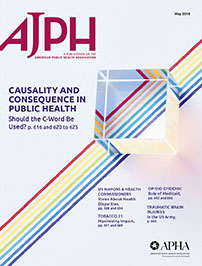
The American Journal of Public Health has retracted a controversial 2018 paper on the effects of economic austerity in Spain because it contained “inaccurate and misleading” results linking those policies to a massive spike in premature deaths.
The journal also has published a second piece, by a different group of authors, refuting the central claim of the now-retracted paper. Whereas the first article asserted that austerity in Spain during the mid-2000s led to more than 500,000 excess deaths, the new research says deaths in the country slowed during the country’s economic crisis.
The flawed article, “Austerity policies and mortality in Spain after the financial crisis of 2008,” was written by a group of researchers at the Hospital Universitario Nuestra Señora de Candelaria, in Santa Cruz de Tenerife, on the Canary Islands. The authors claimed that their analysis of the years 2011 to 2015 showed that:
Continue reading Public health journal retracts paper on austerity for “inaccurate and misleading results” Last April, the
Last April, the 